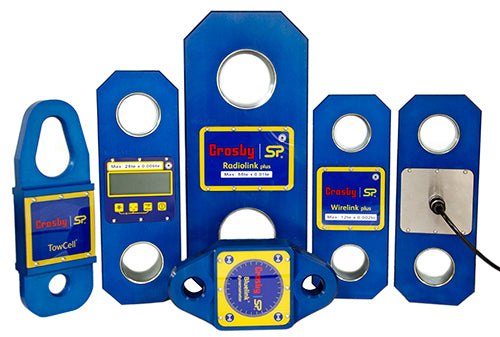We have many years under our belt serving industries that need to lift heavy, bulky, and awkward things, and in that time, we've gotten to know a thing or two about lifting equipment!
Sometimes, when you know an industry so well, you can forget that not everyone is up to their ears in it in the same way. So for the sake of anyone who doesn’t live and breathe lifting equipment, let’s take a high-level look at what industries are using our crane scales and other offerings.
Commercial Fishing Industry
In the commercial fishing industry, the experienced skipper of a boat can sometimes tell the weight of their catch within a few hundred pounds. But of course, even years of experience aren’t going to be precise enough to satisfy legal requirements, or common sense and business practices! In such a highly regulated industry, accuracy matters. And in such a harsh environment, weighing must happen at times with low visibility: regardless of day or night, or whether the boat is pitching and rolling in the sea or safely docked in the harbor and transporting the catch to the processing facility.
Using a crane scale works for most commercial fishing scenarios. The fish can be sorted into totes and weighed before being stored in the hold or weighed when they're offloaded at the shore.
Waste Management and Large-Scale Recycling
Waste management and recycling - scrap yards, metal recycling, and waste management businesses can't operate without strong and accurate solutions. They must weigh their product as it arrives and again as it leaves. And while they use other types of scale as well, (think truck scales or even rail car scales), crane scales are an accurate way to verify product that arrives or leaves on pallets or in bundles.
This in-process weighing can prevent a truck or rail car from being overloaded in the first place. This is far more efficient than having to remove excess product later, after the shipping container or truck is loaded and officially weighed.
Port Shipping and Maritime Logistics
Anytime you visit a port, you'll find a plethora of lifting and weighing equipment. It's easy to spot the massive ship-to-shore gantry cranes at container terminals, for loading and unloading container ships.
But dig a little deeper and you'll also find a vast array of other lifting equipment that we sell: snatch blocks, turnbuckles, all kinds of rigging equipment, and yes, crane scales. Each of these items plays a part in avoiding overload accidents. In shipping and logistics, scales allow you to lift, weigh, and load safely and accurately.
Construction Sites
One key advantage of crane scales, of course, is that you can move the scale to the load. Most types of scale must have the load brought to the scale for weighing. On construction sites, you'll find crane scales weighing awkwardly shaped items. You can lift any load with it and weigh it at the same time. They are remarkably compact for what they do and can be suspended from forklifts, hoists, or traditional cranes.
Industrial manufacturing
Any factory with a loading dock has the potential to benefit from a crane scale. Because they do not require a large footprint, they are an efficient use of space in a factory, where space is typically at a premium. You’ll find them used to lift large pieces of equipment, heavy irregular-shaped castings, pallets, coils, 55-gallon drums, and anything else that can be suspended. Again, the ability to move the scale to the load’s location comes in very useful with large pieces of equipment where there might not be a lot of room to maneuver it around.
Crane scales are critical in more industries than we can enumerate here. We'd love to know what you’re using yours for: what are you lifting and weighing today?

